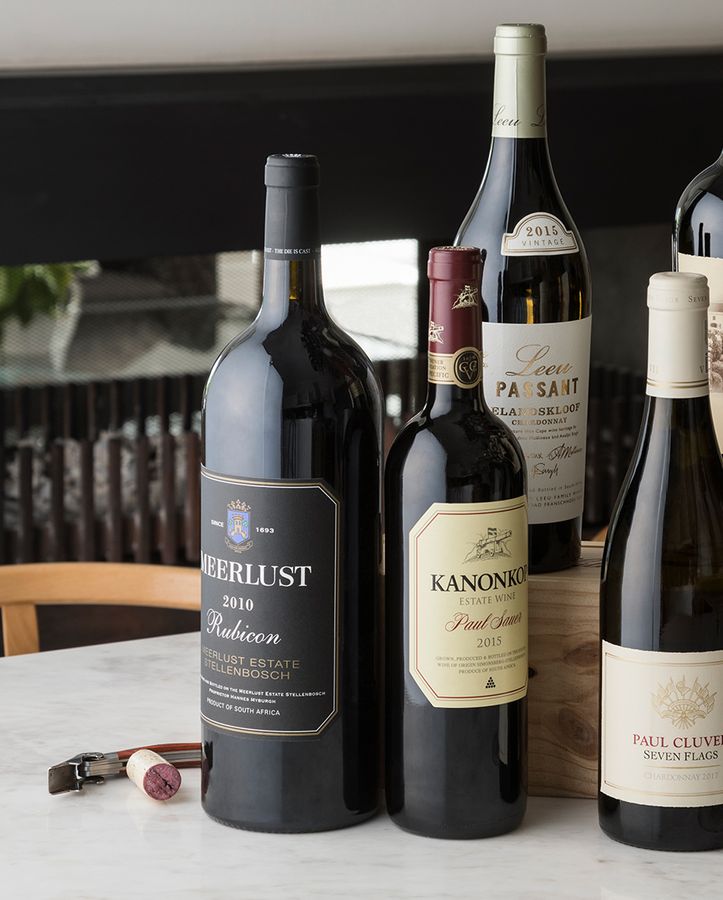In fact, Sir Antonie seemed to have a penchant for naming his children for the places and people he loved, his second daughter Hannah having been named Johannah Jakobmina Krugerina, in honour of President Paul Kruger (though Kruger was later to turn on him for his leniency toward the British, one wonders if Hannah considered a name change). Sir Antonie worked tirelessly to repair the divide that existed between Boer and Brit and was knighted by the King in July 1916 for his efforts.
Sir Antonie Viljoen
Viljoen was one of ten children from Middelplaas farm in the nearby Caledon district. His mother chose well when she singled him out as the one child to receive a proper education, having been schooled at the South African College in Cape Town and then sent to Edinburgh University in Scotland to study medicine. In his lifetime Sir Antonie assumed a number of roles, including: District Surgeon of Caledon, District Surgeon of Krugersdorp, Cape Legislative Council for the South Western Circle (we weren’t aware of any Circle), representative for the Caledon district in the House of Assembly in 1904, Senate at the formation of the Union of South Africa, National bank of South Africa board member from 1914, SA Mutual (Old Mutual) board member from 1918 and above all, pioneer Elgin Valley farmer.
'Farm-Arrest'
Long before his knighthood Viljoen was somewhat serendipitously placed under ‘farm-arrest’ by the British army during the Anglo Boer War (1899 - 1902) to prevent him from assisting with the war effort in the Free State. The ‘farm-arrest’ earns its inverted commas by virtue of the fact that Viljoen was also required to pay the salaries of the two uniformed guards who had been tasked to guard him until the end of the war (by our estimation that accounts for three years of ‘employment’).During this time Viljoen proved himself to be a pioneer farmer in the Valley, being the first to plant apples and pears in an area which was later to become KNOWN for its fruit. While the fruit provided a solid flow of income Viljoen was not a man to rest on his laurels (by all accounts). He went on to grow potatoes, farm livestock, plant the 4000 oak trees which he specified in his will were never to be tampered with and by 1907 had 50 000 bearing vines (Semillon, Palomino, Cinsaut, Cabernet and Montpellier). His scientific approach to farming was emulated by his heir, husband of Hannah (Krugerina), George Crundwell Rawbone. And so the Rawbone-Viljoens (the conjoined name having been settled in court due to Sir Antonie’s insistance that only a Viljoen should own the property) became the custodians of the land, their name a symbol of the Union of the New South Africa (NEW by 1947 standards mind you).
Grape Growing
Grape growing at Oak Valley was largely put on hold during the Depression years of World War II in favour of growing canning peaches, which did a roaring trade during that time. However no-one can keep a good terroir down and in 1985 they had started to re-establish their vineyards selling their grapes to industry leaders such as Bouchard Finlayson. The quality of the grapes farmed here not only catapulted brands like Finlayson into another realm, but highlighted the potential of making extraordinary cool climate wines here. In 2003 they produced their first Sauvignon Blanc under the Oak Valley label and since then we have developed a special penchant for their Pinot Noir.
Oakleine
The lower slopes of Groenlandberg has proven to be prime winemaking terroir, which supplemented by the keen agricultural initiatives of the Rawbone-Viljoen clan has thrived. Oak Valley today produces flowers, Waygu Beef, Pigs fed on the acorns of the 4000 oak trees, apples and pears (fundamentally) and beautifully thought out wine. The new redesign of their wine labels merely point toward the constant thought and innovation put into this land and we could not recommend them to you more highly, supplemented by the fact that it is situated in one of the most beautiful areas in our very fair Cape. Oak Valley Estate is anything but Oakleine, given the sprawling enterprise it has become, and yet Sir Antonie lingers here.
